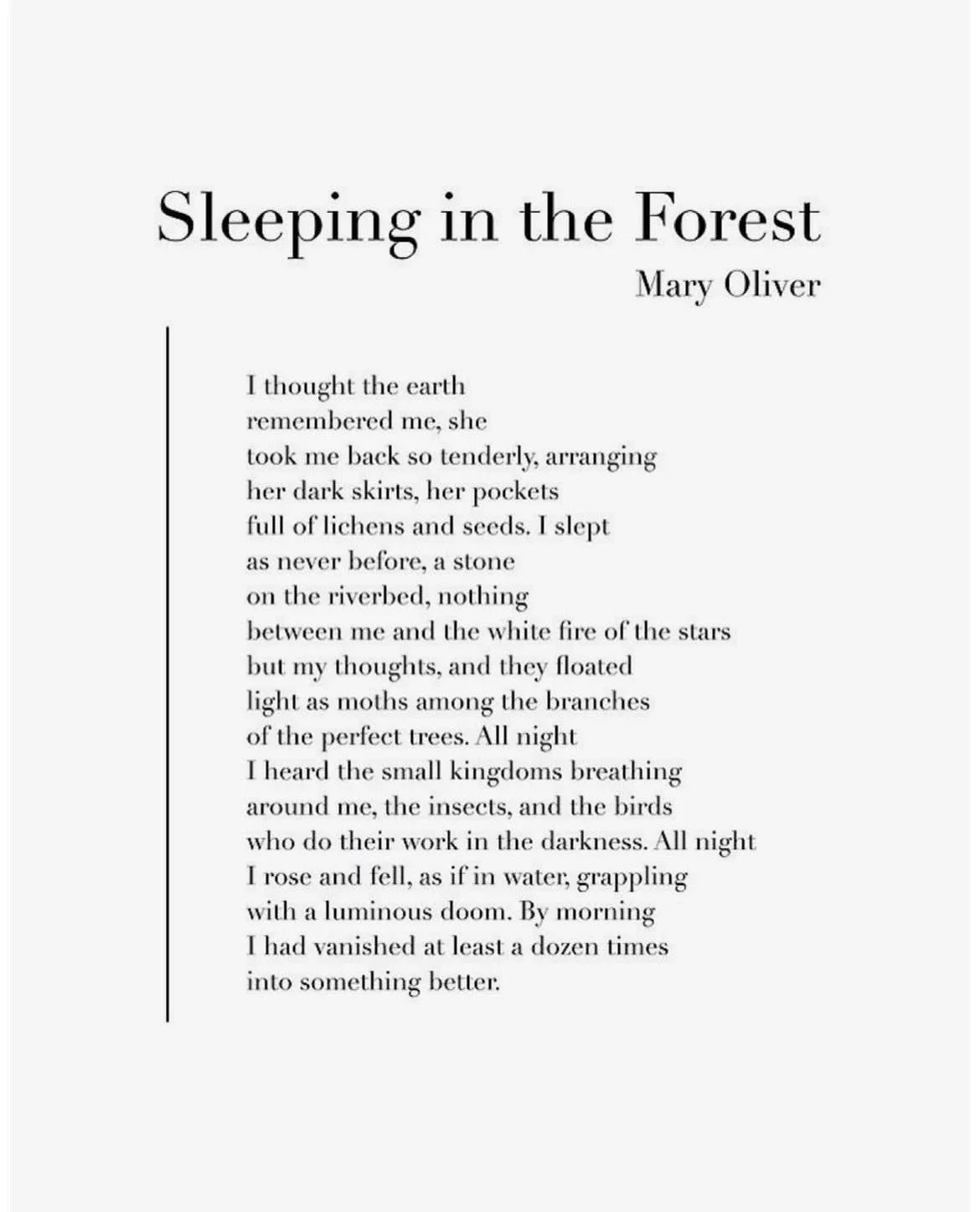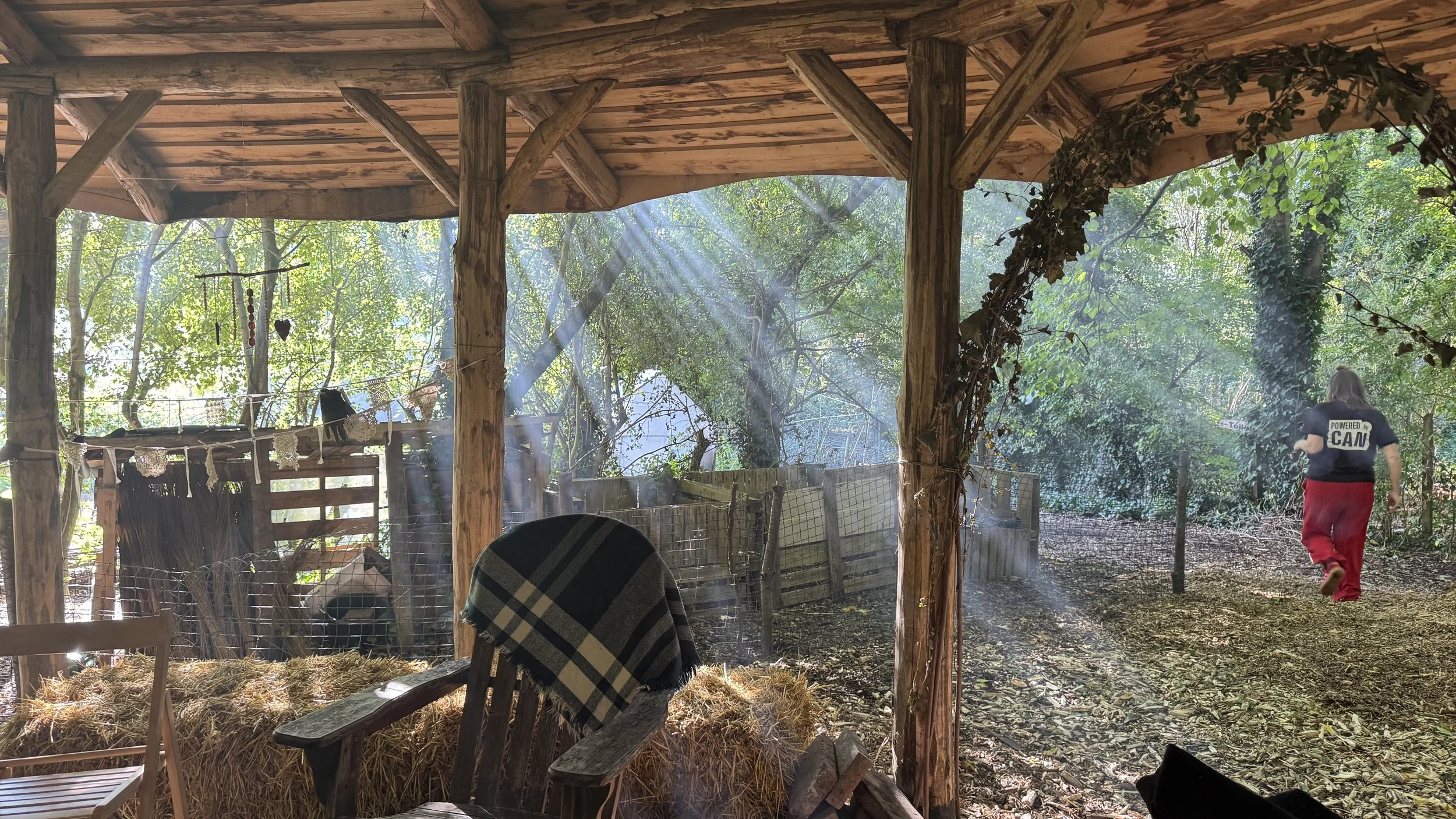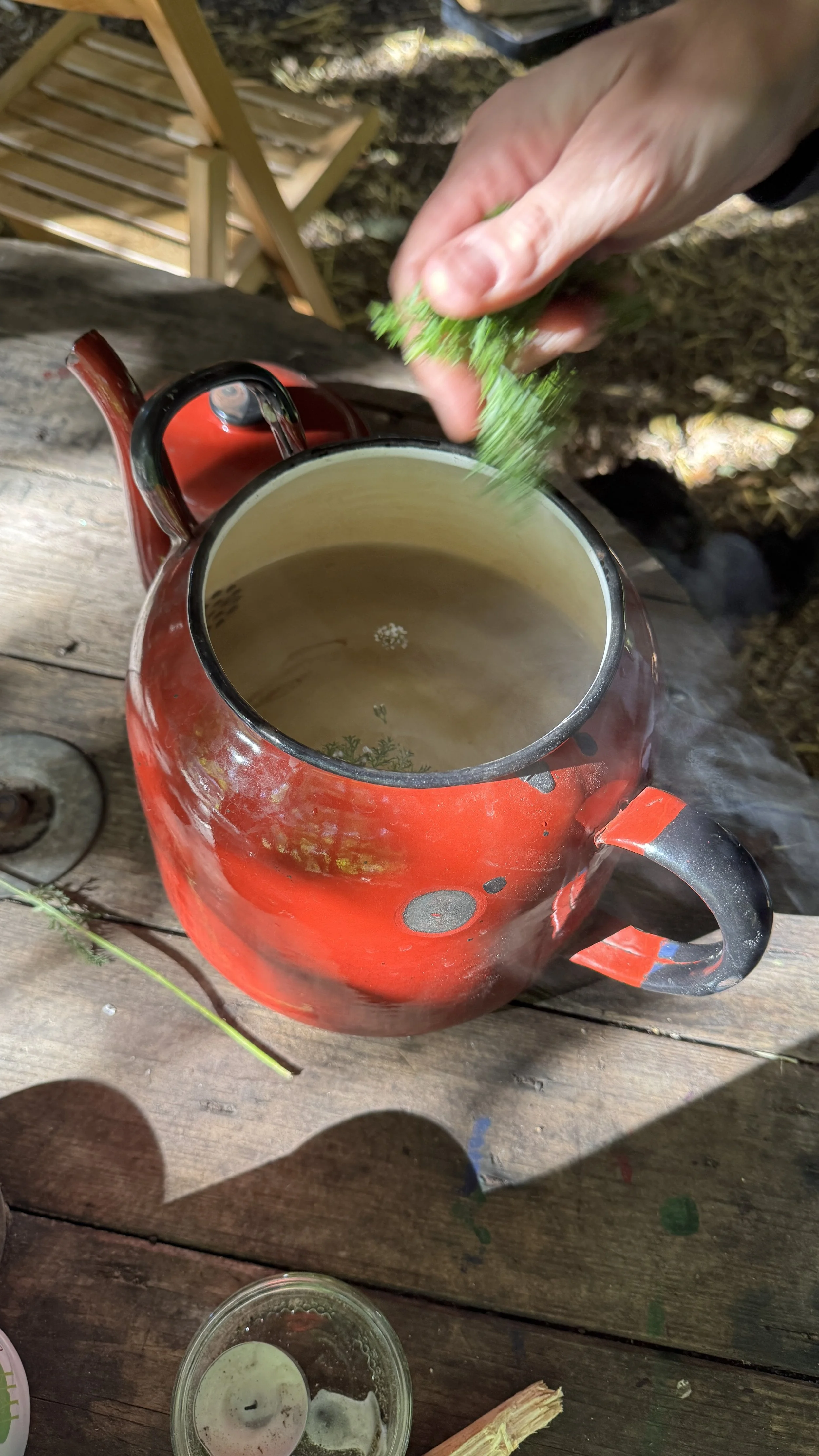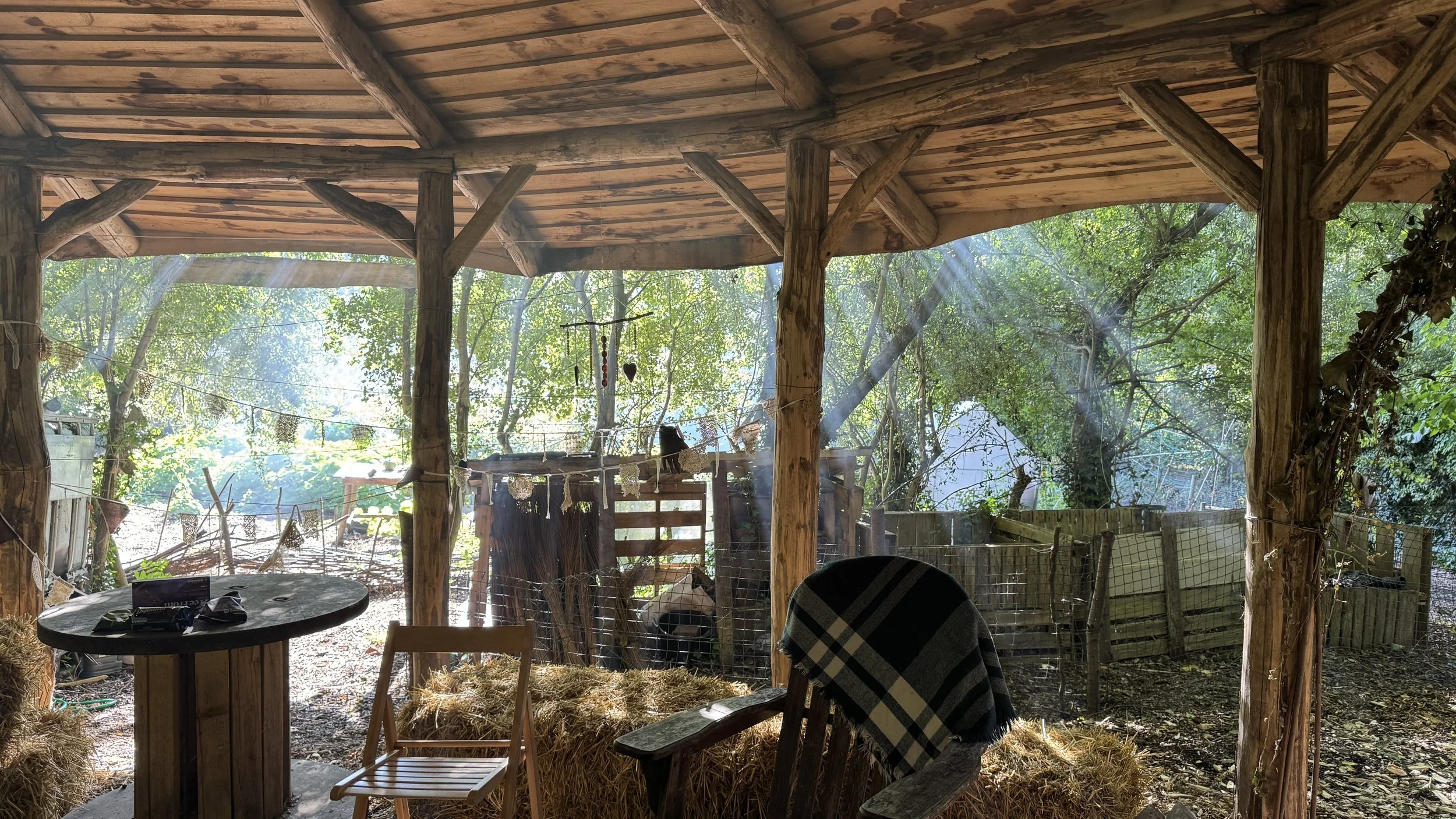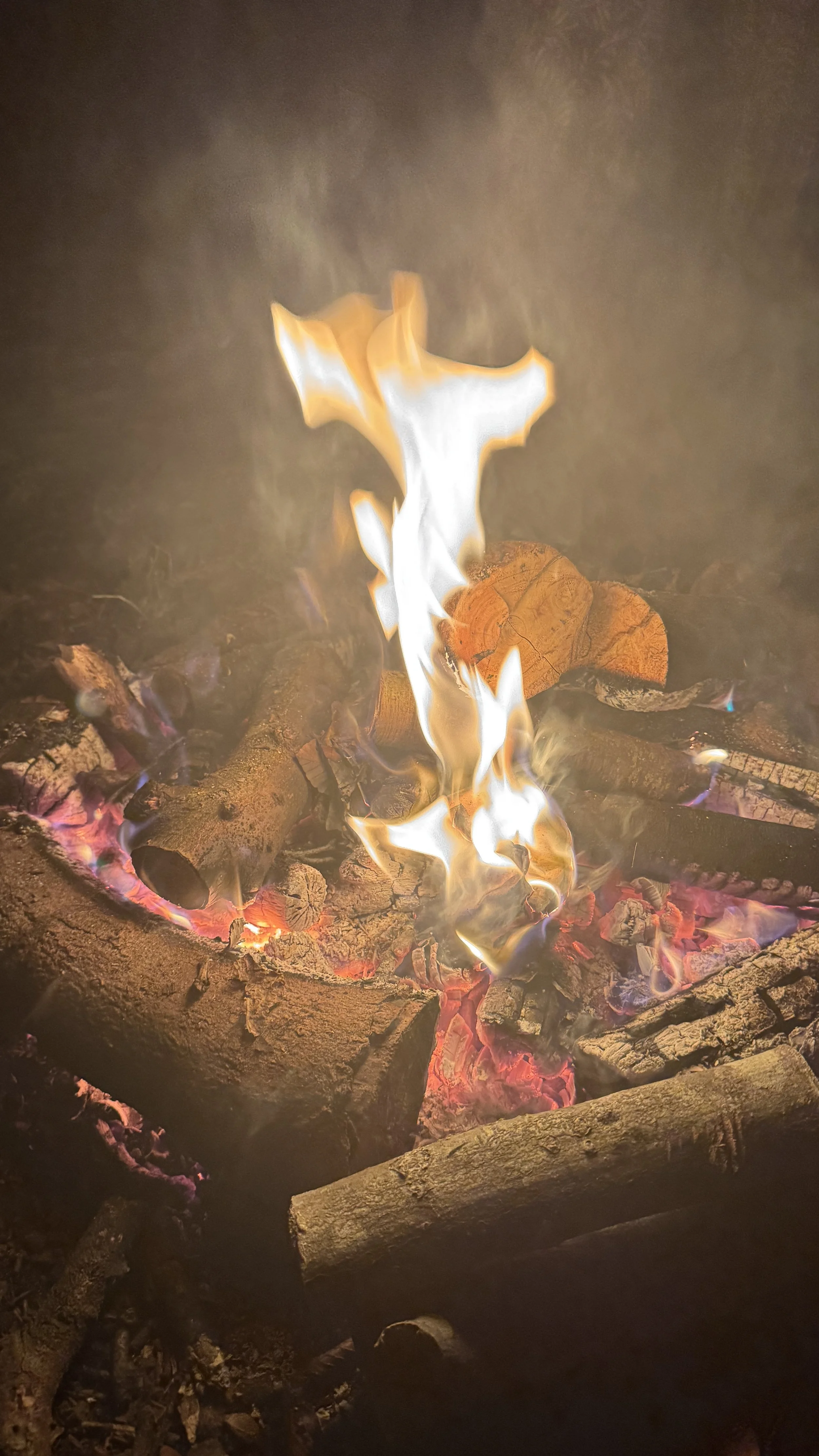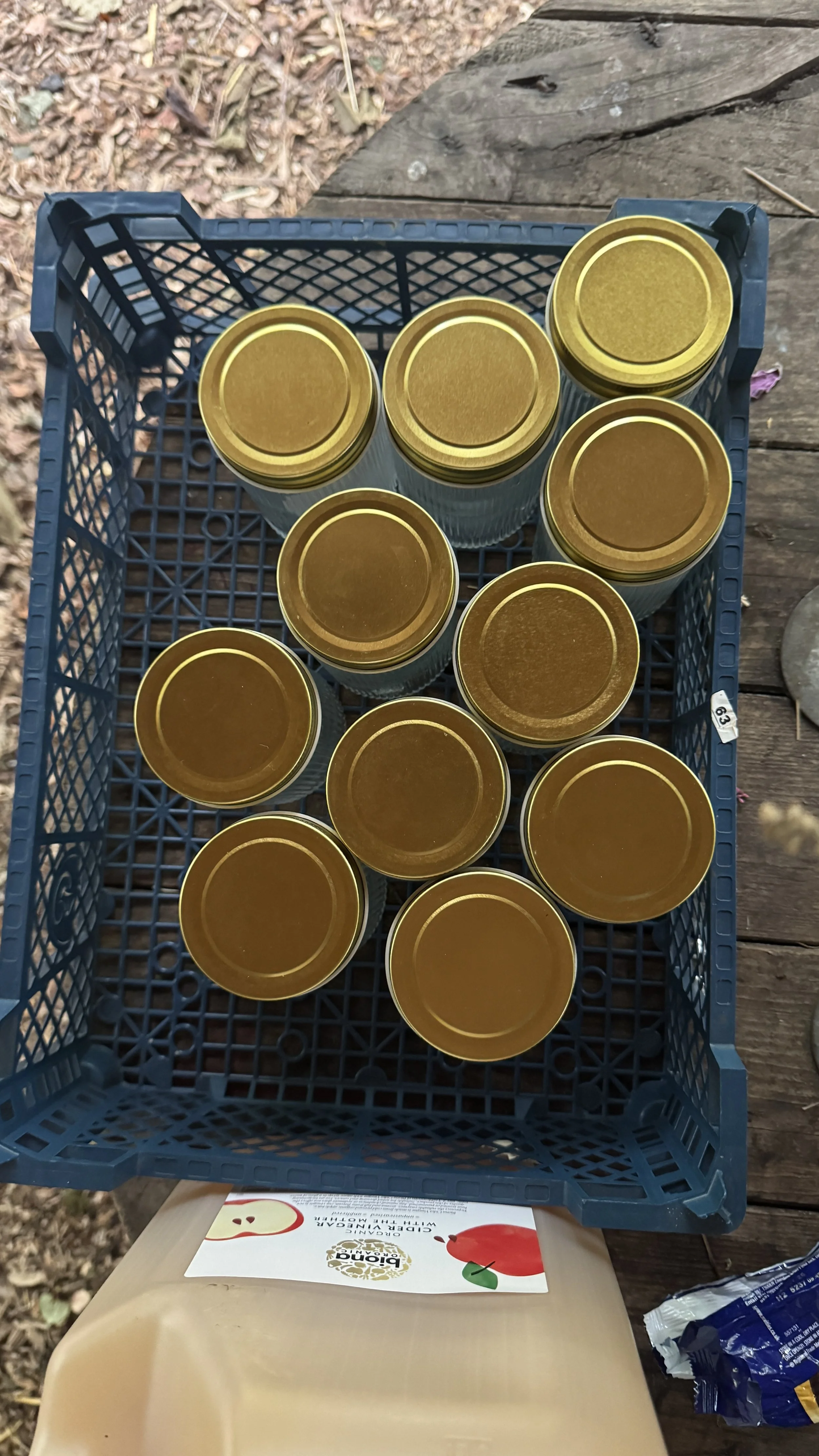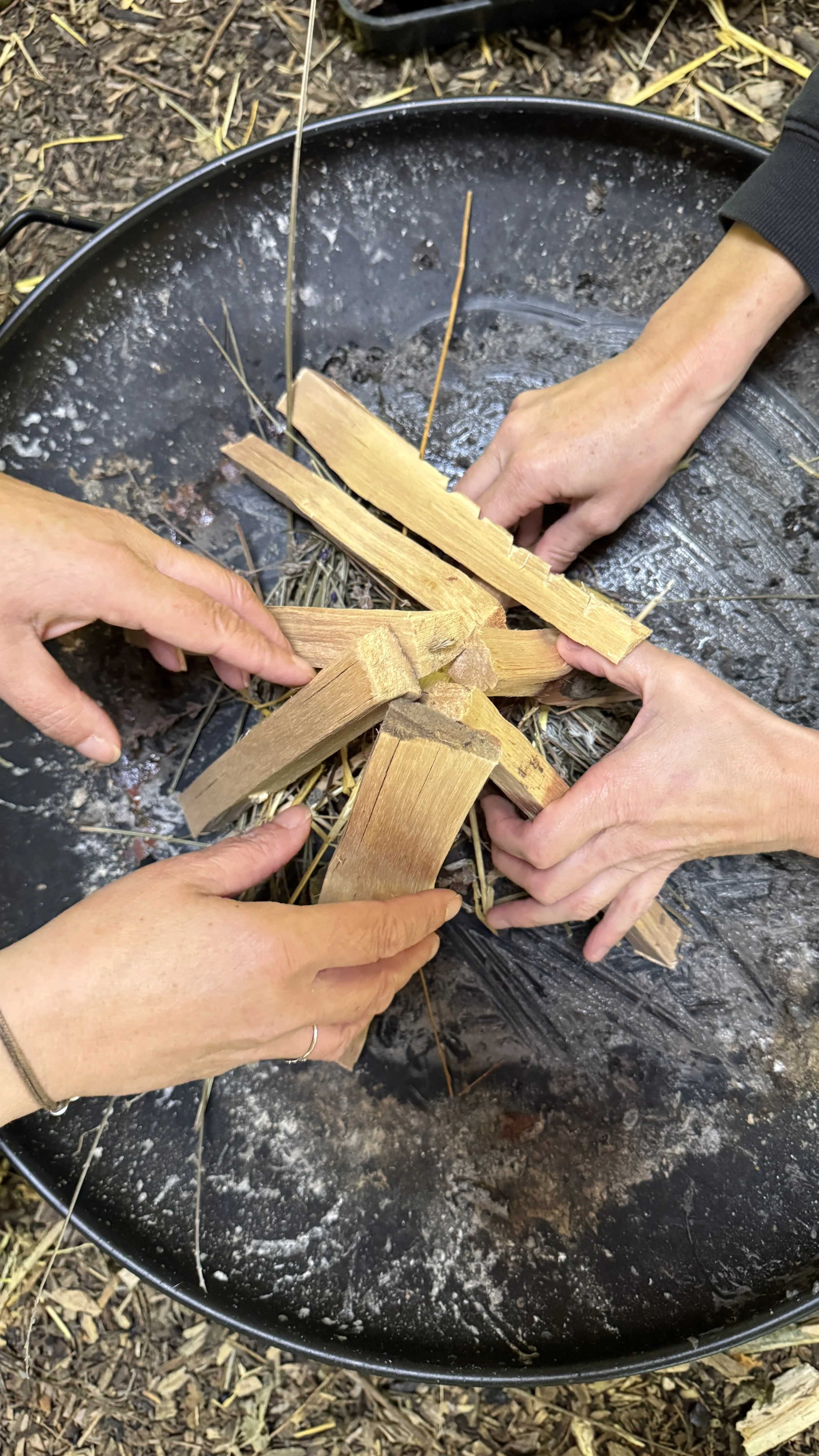
HAWBUSH HERBALISM
SESSION IIII
REFLECTIONS
Herbs Covered
Ginger (Zingiber officinale) — horn root, fire bringer, circulatory stimulant, colonised spice of trade routes and empire.
Onion (Allium cepa) — protector, purifier, base note of healing.
Garlic (Allium sativum) — antibiotic, warrior, heart warmer.
Radish (Raphanus sativus) — root of renewal, digestive mover.
Nasturtium (Tropaeolum majus) — bright leaf and flower of courage, antimicrobial ally.
Rosemary (Rosmarinus officinalis) — remembrance, clarity, strength of spirit.
Hawthorn (Crataegus monogyna) — heart medicine, boundary of place, hedgerow guardian.
Cayenne (Capsicum annuum) — spark, stimulator, fire over the heart.
Lemon & Orange (Citrus limon, Citrus sinensis) — brightness, cleansing, sunlight in winter.
We couldn’t make Fire Cider without fire and as we turn into the darker side of the year, we gathered under the roundhouse, around a fire, spoke of colonised Ginger, reclamation of the ‘brand’ and made a jar of our own.
Ancient Fire Cider
Listen to the voice note from the fire here.
Transcript rewritten for clarity from the voice note.
Vegetables that add fire — like onions, garlic, horseradish, and chilli — all help to fire up the metabolism. They have communal benefits, everyone loves them, and they make good, accessible medicine.
A few years ago, a group of women herbalists got together and decided to reclaim the name Fire Cider. The name had been trademarked by a business, even though it was a long-standing traditional recipe belonging to the people. These women fought to make it public again, to return the medicine to common use. It wasn’t that long ago, maybe the late 1990s, when that happened, and they eventually won: the name now belongs to everyone again.
The tradition of making fire ciders, or fiery vinegars, goes back a long way. They’re a way of preserving and getting the best from the plants, combining ingredients that warm the blood and stimulate circulation “fire over the heart.”
It’s a medicine that makes what we need more available to everyone: vinegar, onion, garlic, horseradish, ginger, all common kitchen herbs. In springtime we might add wild greens like garlic, dandelion, or chickweed. You put them in the window and let them steep; it’s got all the benefits inside.
When we think about making our own versions here, we can look around and ask: What have we got locally that can bring warmth and fire in the same way? We can make our own head-to-toe tonic from what grows around us.
“And that’s the beautiful thing how these recipes and practices move through people and places. The story of Fire Cider is one of reclamation, community, and connection.”
Clare. Herbalist. Ekho Collective.
On industry, knowledge, & reconnection
Listen to the second voice note from the fire here.
Industrialisation and modern science have distanced people from direct relationships with food and medicine. When we buy things mass-produced (acids, vinegars, even herbal products) we lose that personal relationship with how they’re made.
In the old paradigm, only farmers or pharmacists had that knowledge. Now we can reclaim it, bringing it back to local scale, small actions that close the distance between us and the food or medicine we consume *THE NATURE OF COMMUNITY.
It’s not about rejecting science, but about questioning who owns knowledge and what we value as important. Big business creates monopolies; it decides what counts as “medicine,” and we end up repeating those patterns of separation.
Someone shares a personal story around the fires (recorded in the voice recording of the session), about illness, hormonal imbalance, hair loss, and rediscovering their connection to the lunar cycle and the feminine body, illustrating how disconnection from natural rhythms can manifest physically, and how returning to them brings orientation and balance.
“I used to feel completely disconnected from the lunar cycle — I didn’t know where I was within it. Now I can feel it again; I know when I’m in that part of the month. I’ve cut out so much noise, and now I can listen to my own rhythms.”
They speak of anxiety as a signal, not a flaw — a teacher that says slow down, remember where you are.
On ethical consumption and awareness
The discussion shifts to the importance of being conscious about what we buy — choosing products and ingredients grown with respect.
“It’s also important to think about what we’re buying — to make sure the things we use are made with awareness, not part of the same industrial complex that disconnects us. We can’t do everything perfectly, but practising it in small ways matters. Small acts of care make the world gentler.”
They talk about local food systems, knowing the growers, shortening supply chains, honouring the people who grow or forage.
“If you know the people who grow your carrots, your onions, your herbs — that’s medicine too. That’s the antidote to disconnection.”
Grief Tending Ginger
Referencing Ginger’s journey, Clare named Ginger in its multiple names since it does not grow wild anymore.
Names of Ginger
Sanskrit: Śṛṅgavera — “Horn Root.”
Greek / Latin: Zingiberis / Zingiber.
Arabic / Persian: Zanjabil / Zinzibil (زنجبیل).
Afrikaans: Gemmer.
Spanish: Jengibre.
German: Ingwer.
Danish / Scandinavian: Ingefær.
Bengali: আদা (Ada).
Polish: Imbir.
French: Gingembre.
Making Fire Cider
Ingredients used in our Fire Cider:
Onion
Garlic
Radish
Nasturtium leaf & flower
Ginger
Apple cider vinegar
Lemon
Orange
Cayenne pepper
Rosemary
Peppercorns
Hawthorn berries — added to honour the place, the hedgerows surrounding Hawbush Gardens
We chopped slowly, talking as we worked, citrus and spice in our noses. Each ingredient told its own story: fire for warmth, vinegar for preservation, root for grounding, fruit for vitality, flower for connection and expression (The Nature of Community is about giving expression to our Nature).
When everything was layered, we poured the apple cider vinegar to cover, sealed our jars, and took them home to steep for a full lunar cycle.
We’ll strain them, blend them with honey, and share again — a circle of homegrown medicine.
In Circle
We landed in circle with Lorna, speaking about coming back — to spaces of community, of being seen and heard.
She reflected on how much we’ve left behind as a society, how we’ve disconnected ourselves from one another.
“This is the container you can always come back to,” she said.
Bay — seen & seeing.
Cecilia shared a reflection:
“To take this and carry it into the dream world — to let it enlighten me, live in me, and become something else.”
The circle felt reassuring — a place to appreciate each other’s stories.
We spoke about how the lack of community dulls the sense of other people, how gathering restores that awareness.
Healing.

